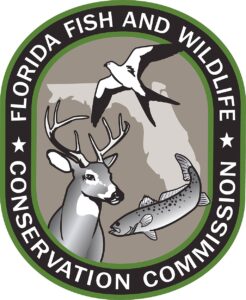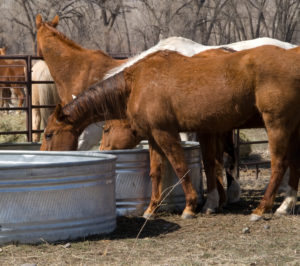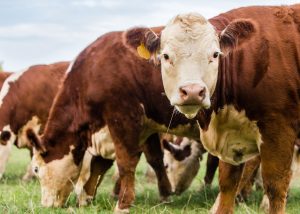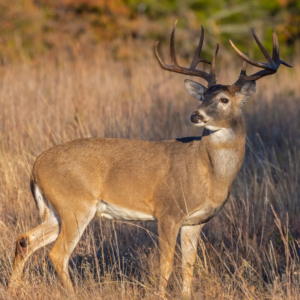 Florida Fish and Wildlife Conservation Commission released the 2025 – 2026 Florida Hunting Season Dates. Check them out below! You can find more information on their website. Before you head to the lease, stop by the store!
Florida Fish and Wildlife Conservation Commission released the 2025 – 2026 Florida Hunting Season Dates. Check them out below! You can find more information on their website. Before you head to the lease, stop by the store!
Kissimmee Valley Feed is proud to stock wildlife and hunting products tons of wildlife feeds for all of you outdoor enthusiasts, including minerals and attractants. We carry brands like Evolved, Antler King, Purina, Mazuri and more!
2025 – 2026 Florida Hunting Season Dates Game Animals:
ANTLERED DEER – antler regulations vary by deer management unit.
Find hunting zone map and DMU-specific antler regulations
Zone A
- Archery season: Aug. 2-31
- Crossbow season: Aug. 2 – Sept. 5
- Muzzleloading gun season: Sept. 6-19
- Youth deer hunt weekend: Sept. 13-14 (1)
- General gun season: Sept. 20 – Oct. 19, Nov. 22 – Jan. 4
and Zone B
- Archery season: Oct. 18 – Nov. 16
- Crossbow season: Oct. 18 – Nov. 21
- Muzzleloading gun season: Nov. 22 – Dec. 5
- Youth deer hunt weekend: Nov. 29-30 (1)
- General gun season: Dec. 6 – Feb. 22
Zone C
- Archery season: Sept. 13 – Oct. 12
- Crossbow season: Sept. 13 – Oct. 17
- Muzzleloading gun season: Oct. 18-31
- Youth deer hunt weekend: Oct. 25-26 (1)
- General gun season: Nov. 1 – Jan. 18
and Zone D
- Archery season: Oct. 25 – Nov. 26
- Crossbow season: Oct. 25 – Nov. 26, Dec. 1-5
- General gun season: Nov. 27-30, Dec. 13 – Feb. 22
- Youth deer hunt weekend: Dec. 6-7 (1)
- Muzzleloading gun season: Dec. 6-12, Feb. 23 – March 1
ANTLERLESS DEER – deer (except spotted fawn) without antlers or antlers less than 5 inches
Zone A
- Archery season:
- DMU A2: Aug. 2-10
- DMU A3: Aug. 2-17
- Crossbow season:
- DMU A2: Aug. 2-10
- DMU A3: Aug. 2-17
- Youth deer hunt weekend:
- DMU A2 and DMU A3: Sept. 13-14 (1)
- General gun season:
- DMU A2: Nov. 22-23
- DMU A3: Nov. 22-25
and Zone B
- Archery season: Oct. 18 – Nov. 16
- Crossbow season: Oct. 18 – Nov. 21
- Muzzleloading gun season: Nov. 22 – Dec. 5
- Youth deer hunt weekend: Nov. 29-30 (1)
- General gun season: Dec. 27 – Jan. 4
Zone C
- Archery season: Sept. 13 – Oct. 12
- Crossbow season: Sept. 13 – Oct. 17
- Muzzleloading gun season: Oct. 18-31
- Youth deer hunt weekend: Oct. 25-26 (1)
- General gun season:
DMU C1: Nov. 22-30
DMU C2: Nov. 22-30
DMU C3: Nov. 22-30
DMU C4: Nov. 22-30
DMU C5: Nov. 1-30
DMU C6: Nov. 22-30
and Zone D
- Archery season: Oct. 25 – Nov. 26
- Crossbow season: Oct. 25 – Nov. 26, Dec. 1-5
- General gun season: Nov. 27-30, Dec. 13 – Feb. 22
- Youth deer hunt weekend: Dec. 6-7 (1)
- Muzzleloading gun season: Dec. 6-12, Feb. 23 – March 1
Bag Limit
Daily bag limit: 2 deer
Possession limit: 4 deer
Annual bag limit: 5 deer of which only 2 can be antlerless. However, in DMU D2, 3 of the 5 deer may be antlerless.
NOTE: Deer taken on private lands under the Antlerless Deer Permit Program (antlerless deer only), Private Lands Deer Management Permit Program and Deer Depredation Permit Program and on licensed game farms and hunting preserves are excluded from bag (daily and annual) and possession limits. Any deer testing positive for CWD also is excluded from all bag limits.
Deer Dog Training Season
Zone A: Aug. 16 – Sept. 4
Zone B: Nov. 1-20
Zone C: Sept. 27 – Oct. 16
Zone D: Oct. 25 – Nov. 13
(1) Youth deer hunt weekend
Youth 15-years-old and younger can harvest any deer except spotted fawn, but youth must be supervised by an adult, 18 years or older. Youth may use any legal method of take (including dogs) for deer, with a limit of 1 deer for the weekend that counts towards the youth’s annual statewide bag limit. This weekend does not apply to wildlife management areas.
Learn more about the youth deer hunting weekend.
TURKEY (gobblers and bearded turkeys only)
Fall Seasons
Daily bag limit: 2 turkeys
Season and possession limit: 2 for all fall seasons combined
Zone A
- Archery season: Aug. 2-31
- Crossbow season: Aug. 2 – Sept. 5
- Muzzleloading gun season: Sept. 6-19
- Fall turkey season: Oct. 6-19, Nov. 22 – Jan. 4 (2)
and Zone B
- Archery season: Oct. 18 – Nov. 16
- Crossbow season: Oct. 18 – Nov. 21
- Muzzleloading gun season: Nov. 22 – Dec. 5
- Fall turkey season: Dec. 6 – Feb. 1 (2)
Zone C
- Archery season: Sept. 13 – Oct. 12
- Crossbow season: Sept. 13 – Oct. 17
- Muzzleloading gun season: Oct. 18-31
- Fall turkey season: Nov. 1 – Dec. 28 (2)
and Zone D
- Archery season: Oct. 25 – Nov. 26
- Crossbow season: Oct. 25 – Nov. 26, Dec. 1-5
- Muzzleloading gun season: Dec. 6-12
- Fall turkey season: Nov. 27-30, Dec. 13 – Jan. 18 (2)
Spring seasons (2)
Daily bag limit: 2 turkeys
Season and possession limit: 2 for all spring seasons
North of State Road 70
- Youth turkey hunt: March 13-16 (3)
- Spring turkey season: March 21 – April 26
South of State Road 70
- Youth turkey hunt: Feb. 27 – March 2 (3)
- Spring turkey season: March 7 – April 12
(2) Fall and spring turkey seasons – Shotguns, rifles, pre-charged pneumatic air guns, pistols, muzzleloaders, crossbows or bows may be used.
(3) Youth turkey hunt – Youth 15-years-old and younger can harvest turkey, but youth must be supervised by an adult, 18 years or older. However, adult supervisors with a hunting license and turkey permit can “call in” the turkey and otherwise participate in the hunt, but they cannot shoot or shoot at turkey. Learn more about the youth turkey hunt.
QUAIL
Statewide Nov. 8 – March 1
Daily bag limit: 12
Possession limit: 24
Rifles, shotguns, pistols, muzzleloaders, air guns, crossbows and bows may be used. Quail may also be taken during archery, crossbow and muzzleloading gun seasons using the respective methods of take allowed during those seasons.
BOBCAT
Statewide Dec. 1 – March 31
OTTER
Statewide Dec. 1 – March 1
Bobcats and otters may be taken by rifle, shotgun, pistol, muzzleloader, air gun, crossbow or bow.
Bag limits: No limit on bobcats and otters






 Avoid the summer pasture slump! The sight of fresh, green pastures as the summer months approach can be a welcome sight for many cattle producers. Especially after feeding costly forages throughout the winter.
Avoid the summer pasture slump! The sight of fresh, green pastures as the summer months approach can be a welcome sight for many cattle producers. Especially after feeding costly forages throughout the winter. The Impact of Heat Stress on Deer: Heat stress can have metabolic and hormonal effects on ruminants that have significant production impacts. This includes reduced feed intake, growth, milk production and reproduction. By understanding heat stress, when it occurs, and its impact on deer can help improve management decisions.
The Impact of Heat Stress on Deer: Heat stress can have metabolic and hormonal effects on ruminants that have significant production impacts. This includes reduced feed intake, growth, milk production and reproduction. By understanding heat stress, when it occurs, and its impact on deer can help improve management decisions.